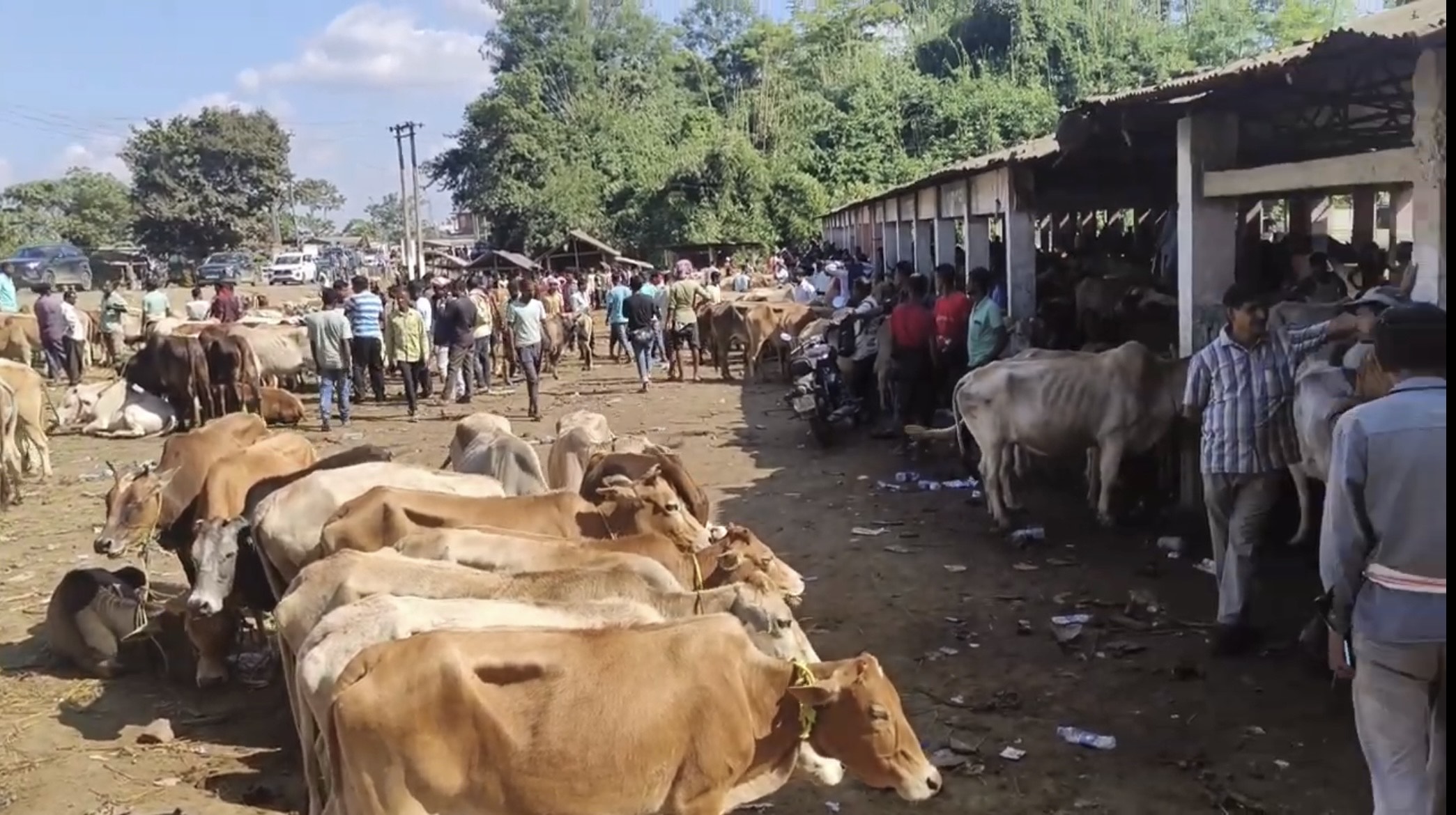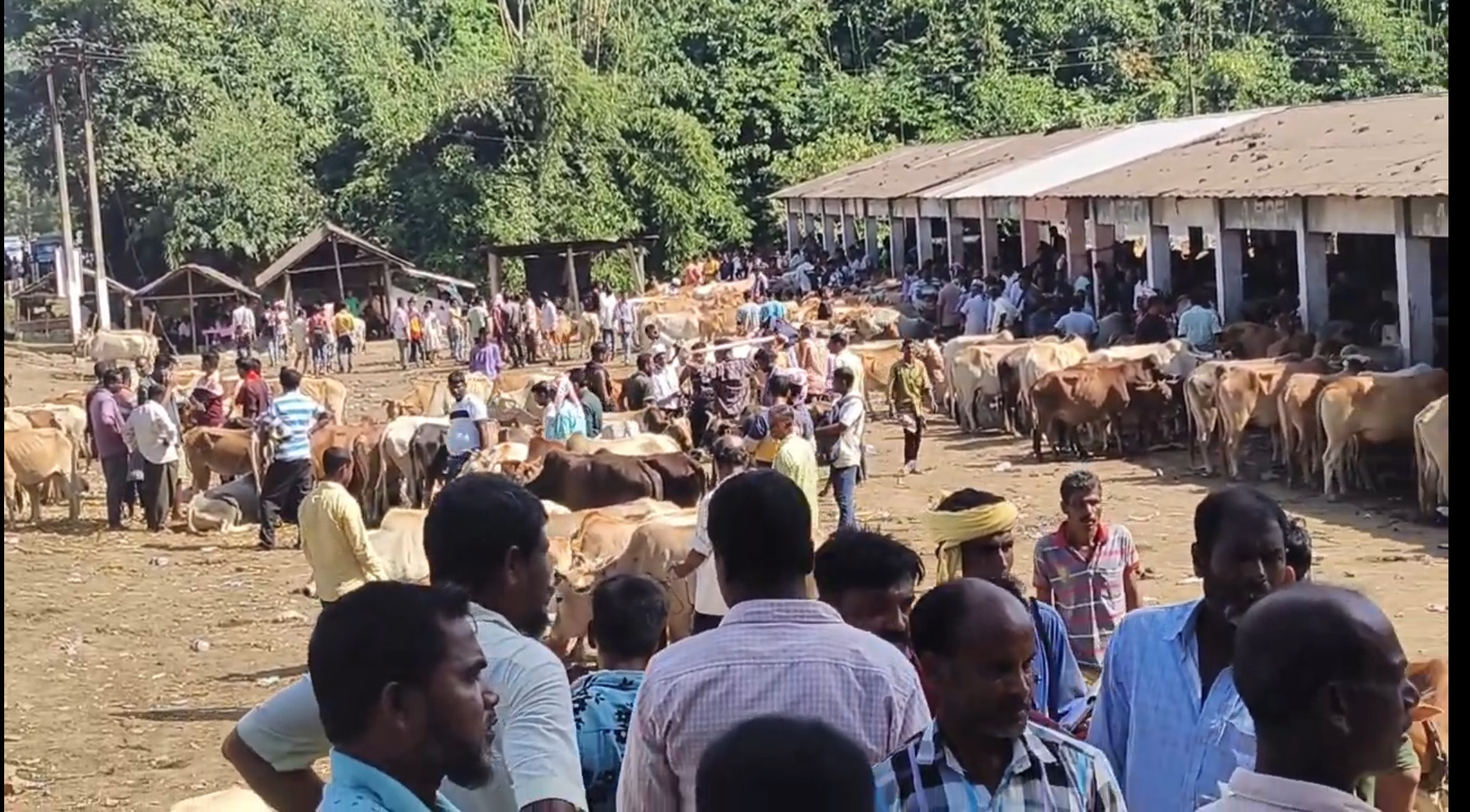Cow Slaughter, Beef Ban: The Lackluster Obsessions of Assam CM

Sandipan Talukdar, TwoCircles.net
Mohen Morang’s family owns over 80 buffaloes and 50 cows in their cattle shed near Bamun Chapori, located in the Golaghat district of Assam. A chapori refers to the riverine areas teeming with lush grass, perfect for cattle herders. Morang’s family, along with many other members of the Mising community from Golaghat, has been engaged in cattle herding for generations to sustain themselves through the sale of milk and cattle.
For herders like Morang, the Behora cattle market has long been a source of steady income — helping to meet medical emergencies and fund their children's education. But the passing of the Assam Cattle Preservation Act in 2021, under Chief Minister Himanta Biswa Sarma’s leadership, abruptly impacted their livelihood. The market took a major hit. The recent government decisions, such as the ban on beef in public places, further threaten the already fragile business.
“We used to sell a buffalo for around 80,000 until 2021. After the law came in, we only managed to get Rs 50,000 or less. It was a shock for us,” said Morang. Though the market has seen slight recovery, the new Cabinet decision to ban beef in public places is already causing noticeable ripples. “This will surely affect us more,” he added.
The situation is no different for those in Sivasagar, where the Rajmai cattle market — the largest in Assam — has seen a sharp decline since the 2021 Act came into effect. Luhit Konwer, a herder from Rupohibam village, said, “We used to earn well from the market, but now, it is a struggle. I have over 100 cattle, and every year, they increase in number. The business was once profitable, but now, it is threatened.” He, like many others, is hoping for a relaxation of the laws to help preserve their livelihoods.
The Cabinet Decision
What began as a political squabble after Assam's recent by-election results, soon escalated into a Cabinet decision banning the sale of beef in public spaces, including hotels and restaurants. While the issue of beef consumption has been divisive for years, it is rare for it to resurface with such intensity. As expected, the move sparked controversy, with sharp criticism coming from Meghalaya's political leaders, including a BJP MP and a minister from the ruling National People's Party (NPP).
Addressing the media, CM Sarma downplayed the significance of the ban. He stated that it was no new issue — beef consumption among Muslims in Assam is well-known, and the new law simply prohibits its service in public places.
Sarma also seised the opportunity to attack Congress MP Rakibul Hussain and accused him of distributing beef to secure votes during elections. This was seen as part of the larger political drama following the BJP’s win in Samaguri, a Muslim-majority constituency, during the recent by-polls.
The Cow and Beef Saga
Since Sarma took office in May 2021, his tenure has been marked by a series of controversial measures, including a ban on cow slaughter through the Assam Cattle Preservation Bill, which became a legislation in 2021. Under this law, cow slaughter is prohibited unless the animal is certified unfit for work by a veterinary officer. The recent cabinet order further cements this position, with an added focus on beef consumption in public spaces.
This is not the first time such laws have been implemented in Assam. The original Assam Cattle Preservation Act of 1950 prohibited the slaughter of cattle unless they were over 14 years old or unfit for work. After a 70-year gap, the issue was revived in 2021 with stricter provisions, only to resurface once again in 2024 with the beef ban.
[caption id="attachment_451071" align="aligncenter" width="2117"] Behora Cattle market, Golaghat, Assam[/caption]
Behora Cattle market, Golaghat, Assam[/caption]
A Lackluster Approach?
Despite the political posturing, the recent Cabinet decision has garnered widespread criticism, even from within the ruling Bharatiya Janata Party (BJP). CM Sarma's dismissive comments in the media, combined with BJP MLA Diganta Kalita's ambiguous remarks about beef consumption in private homes, have left many puzzled. Kalita’s suggestion that beef consumption at home is acceptable as long as it is not served in public spaces seems contradictory, especially given the legal restrictions already in place regarding cow slaughter.
Meghalaya’s BJP MLA, Sanbor Shullai, sparked further ridicule by humorously defending the consumption of beef and other exotic meats in his state. He opposed the ban and even joked that Assam residents could travel to Meghalaya to indulge in beef dishes, creating a viral moment on social media.
In Assam, the decision has also sparked protests from farmers in the Baimai Bazaar, the largest cattle market in the state. Traders and herders from various districts have voiced their frustration and urged the government to lift the ban or, at the very least, reconsider its impact on the cattle business.
A Divisive Issue for Assam's Tribes
The controversy surrounding the beef ban also highlights a clash of customs among Assam’s diverse communities. While the Karbi and Dimasa tribes, for example, do not consume beef, many other tribal communities in districts such as Karbi Anglong, Dima Hasao and the Sixth Schedule areas do. These tribes, which make up around 12.4% of Assam’s population, have customs that often include beef as part of their dietary practices. The 2021 Act and the recent Cabinet decision threaten to infringe on their cultural rights. It has sparked further tension.
